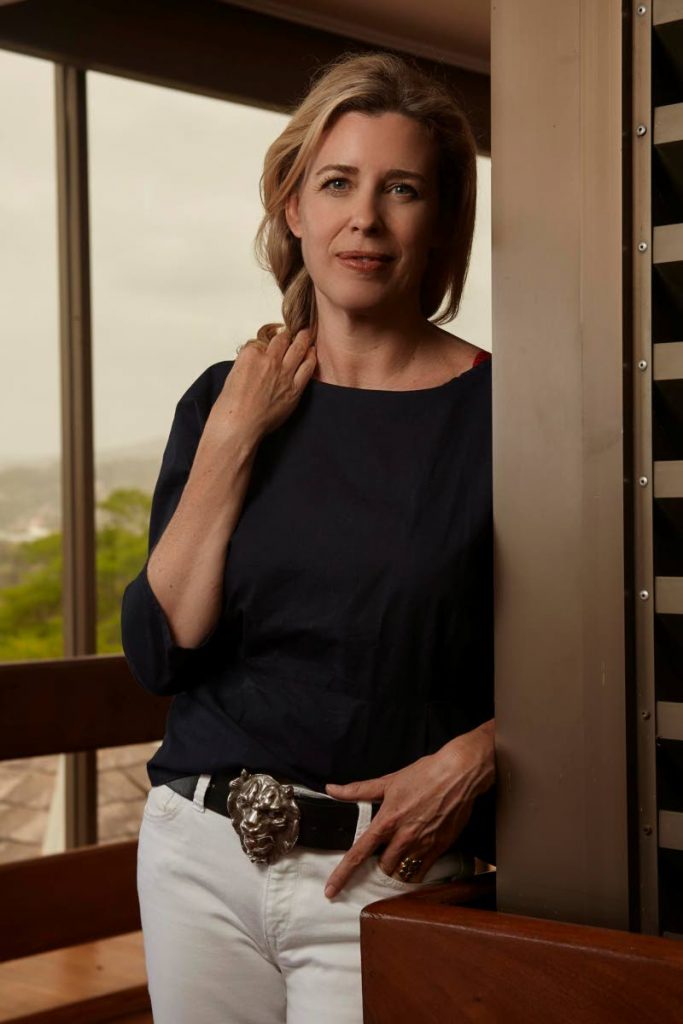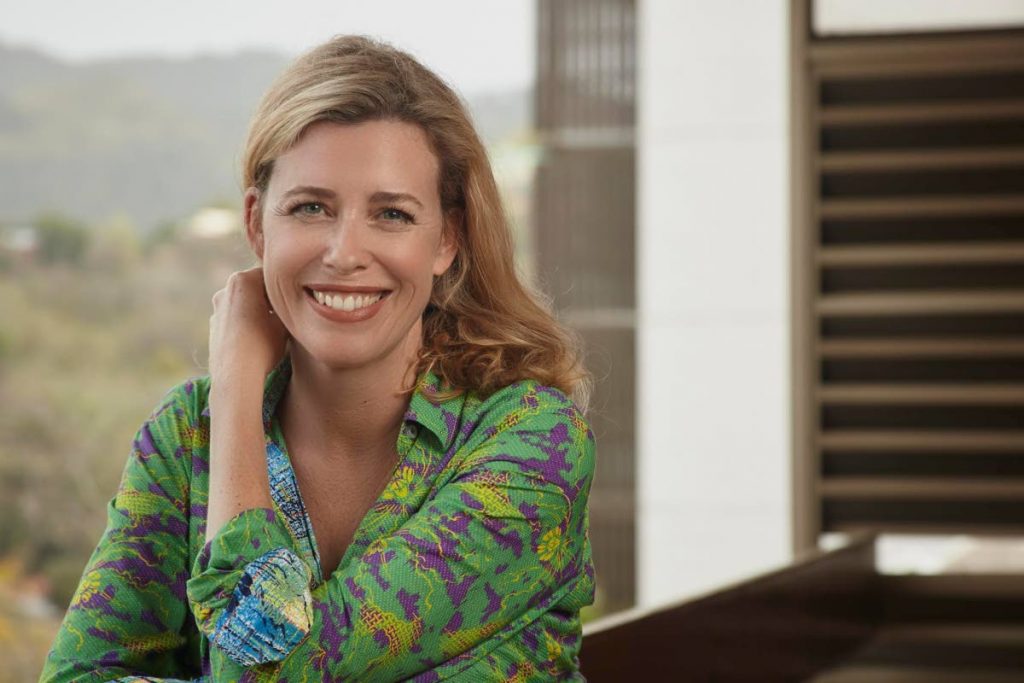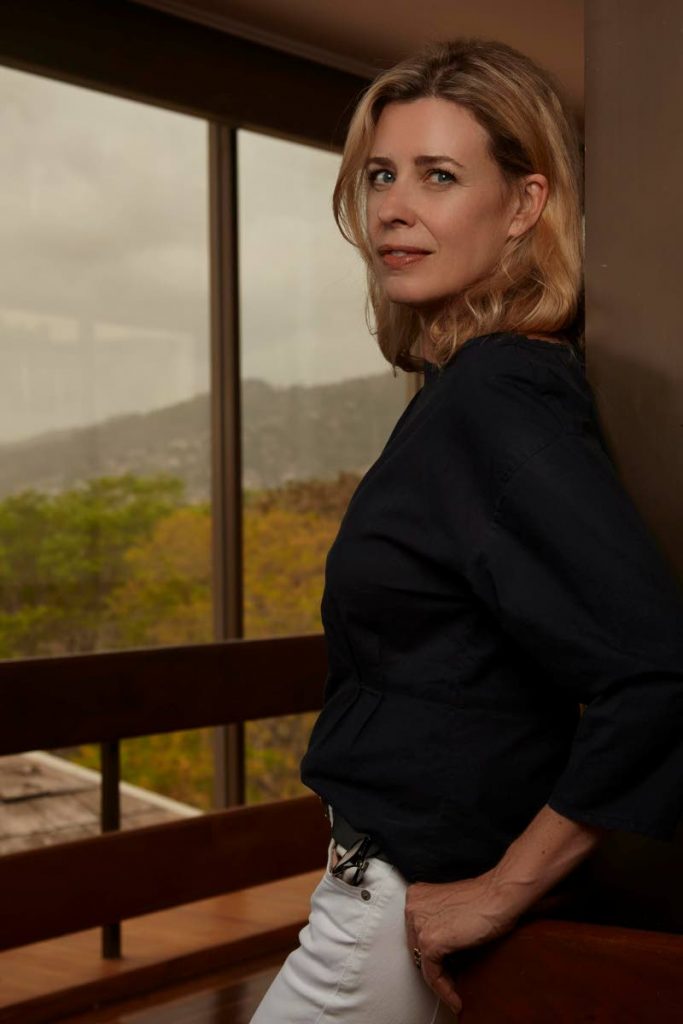My Trinidad stories

AMANDA SMYTH is a Trinidadian-Irish writer. This is part I of a talk she delivered recently to MA students at Birmingham City University in the UK.
Everything you need to be a writer you already have. Everything I have written has come from an experience I’ve had, directly or indirectly. It’s come out of my own life – my characters and plot for every story and novel have been taken from a treasure chest of material I’ve gathered along the way. It is exactly the same for you.
Much of what I write about feels as if it’s made up but often it is mixed with memory. How we process and utilise memories is worth thinking about. We all have our own filter through which we see the world. We have our own nightmares, dreams, shadows, longings and desires. We each have our way of seeing the world. My filter is entirely different from yours. Our filters can never be the same. I can’t write the stories you can write, or see the world in the same way as you. We could never write the same books.
Our lives are full of stories. We build stories around our days – something that happens on the bus home from work; a story we hear of a love affair; a shop closing down on the high street, high winds taking off a rooftop. Someone is diagnosed with illness; or wins a small sum on the lottery.

We are encouraged as children to have an imagination, to role play, lose ourselves in books and games. We are encouraged to believe in unicorns, Father Christmas and fairies. The world we inhabit as a child is alive with magic.
But then we grow up. We are told to work hard, put your feet on the ground, stop daydreaming, take your head out of the clouds. We are urged to be realistic, practical, sensible. Get a proper job. The part of us that daydreams is hammered out of us. It is easy to close down this part of ourselves in order to fit in.
These parts of ourselves that close down are sometimes reignited. Something that moves us, or affect us: beauty, music, nature, art, falling in love. Once again we feel ourselves alive. It is thrilling for a time.
A place that affected me was Trinidad, the birthplace of my mother. My family have been there for generations. As a child, while picking guavas, or tying my shoelaces, I would listen to the old aunts talking of the old estate they grew up on, the hunchback uncle who dreamed of buried treasure. My great-grandmother from Guyana who couldn’t speak a word of English. I heard about my great-grandfather who was murdered by bandits, and how my mother saw him stretched out in the morgue with a bullet hole in his head. They talked of a citrus estate, a girl running through cane fields who looked like an angel; they talked of donkeys, and the scorching sun, a pregnant scorpion who bit my aunt, just a young girl, carried by mule to the doctor.
I didn’t think I’d become a writer. In fact I wanted to be an actor. When I was just 15, I lived in Yorkshire. My home life was difficult, and I never felt as if I belonged. I was visiting my aunt in Leeds, and Jeanette Winterson happened to be staying there, typing up the manuscript of her first novel Oranges Are Not The Only Fruit. She was in the kitchen. I went inside to make a cup of tea.

She said, “What do you want to be when you grow up?”
I said, “An actor.”
She looked at me in a way that made me suddenly doubt myself. So I said, “I’m not sure I’ll be good at it.”
She said, “Well, you probably won’t like it if you’re not so good at it. We generally like doing things that we’re good at.”
I set out on my acting career. Joined a theatre group, shaved my head, toured Europe. I spent several years working as an actor – theatre, television, some commercials. I was never very good at it. Throughout this time Jeanette’s words often came back to me. I saw myself on screen and cringed. I left England and went to live in New York City, where I studied with an acting coach. I wrote in my journals, describing my life, my feelings. I found comfort in Anais Nin. I tried hard, and I was exhausted by the time I left.
I returned to Trinidad to gather myself, to somehow get fit and strong, and return to London to reboot my acting life.
Looking back I can see, by the time I arrived in Trinidad, I was exhausted and probably in a fog of low-level depression. Days passed. Long days, where nothing happened. My mother didn’t push me. No one mentioned my return ticket to London that was about to run out. She knew I was tired. I followed her around the garden while she watered. I let her cook my meals, wash my clothes. A friend had given me a laptop. I wrote down my thoughts. There wasn’t much else to do.
By this stage I was in my twenties. I’d had marriage proposals from wonderful men; I’d lived for years in Notting Hill Gate, my social life was lively, to say the least. Here I was in Trinidad living with my mother on a refinery camp.
My days passed like this – I got up, went for a run, then wrote at my computer. My mother and I talked. Sometimes I found feathers in the yard. I found vultures feathers, scarlet ibis, bluebird. I started to collect them. The day was punctured by meals – and my young cousin who lived next door. His mother had walked out on his alcoholic father. He was nine. He adored my mother.
Joe had shiny dark hair, dark eyes, and he was wiry and tanned and always barefoot. He was often in trouble. Once he poured cooking oil on someone’s car. He didn’t seem to feel pain, emotional or physical. When stung by a scorpion, he never cried. We’d hear his father shouting at him. Our house was a safe place.
Every afternoon, my mother and I walked in the cool evenings through the hills, and Joe came with us. We might see alligators, or a mongoose on the road, the sky a forest of stars. But apart from that my life was quiet. Nothing happened.
Then one day something happened. Joe came over. He was in a strange mood, crawling around on the floor like an insect. So I started to tease him. I tried to kiss him, hold him down and plant a kiss on his cheek. He lost it. He got up and yelled at me. He said, “Leave me alone, you f---ing bitch.”
Then he ran out, slamming the screen door, and up the road to his house. I was shocked. I told my mother I wouldn’t speak to him again unless he apologised. She said, “He never will.”
For days he kept away. I saw him in the supermarket with his father, and I went down another aisle. My mother told me, “Please speak to him, for God’s sake get over it.” It carried on for weeks. Without him in our lives, our days were even quieter. One day he cycled down our drive, saw me and turned around and went back. My mother begged me. I refused to give in.
“He has to learn,” I said. “He has to.”
Then one evening, I was tying up my shoelaces to go for a run. My mother was chopping cassava. We heard a little voice outside. It said, “Sorry.” My mother and I looked at one another. Her eyes were wide, and mine were too. I said, “What was that?” My mother looked at me and waved her hand. Then it came again, “Sorry.”
I opened the screen door – the heat was thick out there – and there was Joe. From behind his back he produced the most beautiful hawk’s feather. I took it from him. Then I said, “Better hurry up before it’s too dark.”
And we took off, with me running ahead, and him cycling and neither of us saying anything to the other. But I was smiling, and I wanted to cry and I knew that something had happened between us.
So I wrote about all this, because I didn’t want to forget it. I lightly described Joe’s father, his housekeeper, my mother. The samaan trees and the evening light. The way he cussed me.
But in my story, I changed the events: I took him to the top of the hill and the moon was bright, a Hindu moon, and I let Joe cycle down the hill at top speed and put out his hands like Jesus. And I put there a car, and he didn’t see the car turning into the road, fast, and coming at him and before I knew what had happened, he was hit, lying in the road and the siren of an ambulance was whirring towards us, and he was taken to hospital where he then died. And his father never noticed he was gone because he was too drunk to answer his telephone.
I wrote it this way – using moments of truth – and a lot of it was true, but the end: I did with it what I wanted. And that’s the thing when you use your own life as material. You can rewrite your own stories and give them the ending you wish. Make them tragic, or happy, or funny.
You can distance yourself from your own experience while using it as a fund of fictional material. I’ve done this over and over. When I’d finished, I knew – it worked, and I sent it out. It was one of my first published stories in the London magazine. Alan Ross sent me a note – “Yes, I’ll use this.”
During this time, memories from my childhood bubbled up. I wrote them down. I gave them new endings. I let them pour out of me. When things are that quiet, when nothing happens, stories can rise up out of you. I started to see that if I paid attention, there were many little everyday stories that I could write about.
It was a significant step in my writing.
Another key thing that happened for me here: I found my teacher. A prize winning poet and journalist called Wayne Brown. I went along to his hot, airless class in Port of Spain, a good hour’s drive from my house. I found myself in this hotel office with ten or so other students. I was quiet. I listened to Wayne’s feedback on other people’s work. He was tough, a bit of a brute. He told his students what wasn’t working and what was working. He went through a piece of prose with a cutlass, discarding the things that didn’t work.
I left there and told my mother I was never going back. Ever.
The following week I went back, and I told him, “Whatever homework you give everyone else, give me double.”
Wayne showed me how to read my work, how to see what I was doing right and what I was doing wrong. He said it was the most dangerous thing for a writer, to not know their craft inside out. Randomly, I was writing good stories, but I was also completely ignorant about craft: my toolbox was empty, relying on instinct and luck to get it right.
He took out the violins from my work. He taught me how to read a poem, how to read fiction properly. He taught me how to cut and cut. He would say to me, “What’s wrong with you, you never went to school?”
One day he sat me down. He told me I had something. I should use it. Give it attention. But no doubt I was thinking to get married and have a family. “You think that will make you happy,” he said. “But you’ll mash it up, and then do it all over again – matching towels, a four by four, a big house. It won’t make you feel alive. By the time your looks have gone you’ll have nothing and people will run from you at parties because you’ll be so boring.”
He encouraged me: work hard, and it might not make you rich, but your life will be rich. What you give the work, it will give back. Give nothing and it will stare at you blankly with its hands in its pockets.


Comments
"My Trinidad stories"